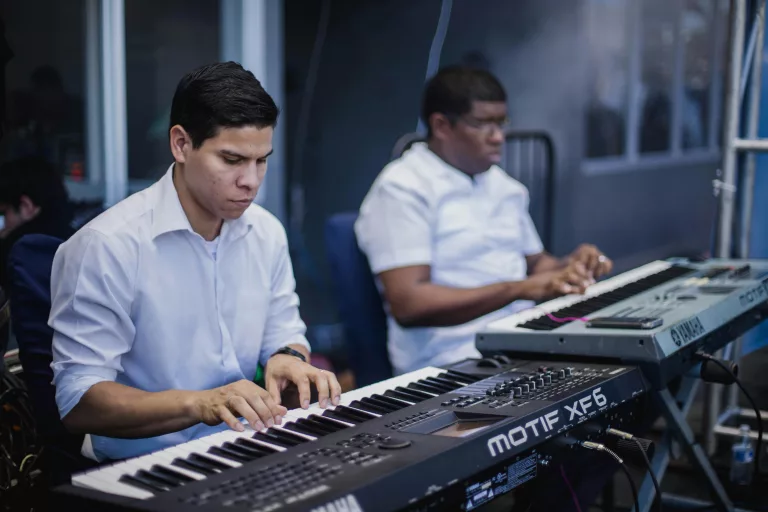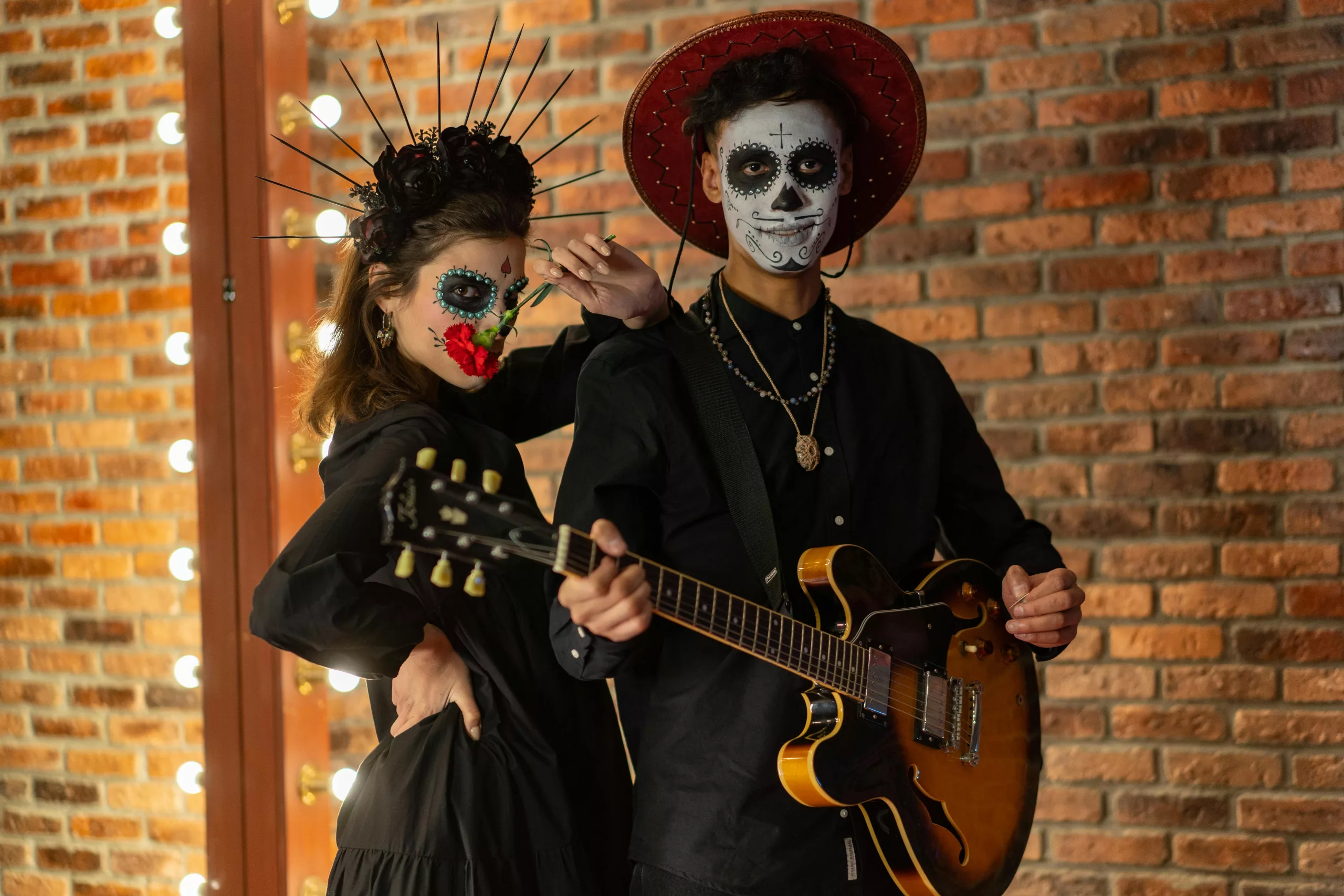The Art of the Remix: How Artists Transform and Reinvent Music


The art of remixing, a creative practice in the music industry, has emerged as a powerful form of expression.
This allowed artists to transcend stylistic boundaries and explore new sonic dimensions.
This article therefore delves into the world of remixing, exploring its history, its cultural impacts and how it shapes the evolution of modern music.
The History of Remix: From Disco to Hip-Hop
The remix has its roots in the 1970s, emerging during the disco era.
Disco producers therefore began to reimagine and rearrange popular songs to adapt them to the needs of the dance floor.
However, it was in the neighborhoods of the Bronx, New York, that remixing took on a new dimension with the advent of hip-hop.
DJs used turntables to isolate and loop musical passages, creating unique versions that defined the sonic aesthetic of the emerging hip-hop movement.
The Digital Age: Reinvention of the Remix in the Age of Technology
With the advent of the digital age, remixing has undergone a revolution.
Music production software has allowed artists to easily manipulate and transform tracks.
It has paved the way for unprecedented creativity.
Genres such as electro, techno and house have therefore flourished thanks to innovative sound engineering and remixes.
The Cultural Reappropriation of the Remix: Fusion of Styles and Influences
The remix becomes a way of merging different musical cultures.
Artists from around the world reinterpret songs in their own styles, creating a global musical canvas.
This cultural reappropriation therefore promotes diversity and celebrates the richness of musical influences.
Virtual Collaboration: Redefining Geographic Boundaries via Remix
The digital age has also facilitated virtual collaborations, allowing artists to worktogether despite geographical distances.
Collaborative remixes are emerging, thus blending creative perspectives and transcending cultural boundaries.
Impact on the Careers of Artists: Renewal of Relevance thanks to Remix
For many artists, remixing becomes a creative strategy to renew their relevance in the music scene.
Remixes of popular songs can propel a career to new heights reaching a wider audience and introducing an artist to potential fans.


Popular Culture: From Dancefloors to Social Media
The remix has firmly established itself in popular culture, influencing the way music is consumed.
Viral remixes circulate on social media, creating global trends and revealing the viral potential of skillful musical reinvention.
Iconic Remixes: Redefining Hits
Some remixes have become as iconic as the original songs. Classics like New Order’s remix of “Blue Monday” have transcended the boundaries of time.
This demonstrated the power of remixing to redefine and therefore extend the life of a song.
Work of Art: Experiments and Innovations
Some artists consider remixing to be an art form in its own right.
Sound experiments and stylistic innovations emerge, challenging musical conventions and expanding creative horizons.
Ethics: Respect for Originals and Copyright
Despite its boundless creativity, the remix raises ethical questions, particularly in terms of respect for copyright.
Artists must navigate carefully to honor originality while breathing new life into existing music.
The Future: Continuous Exploration of the Unknown
In the age of artificial intelligence and advanced sound technologies, remixing continues to evolve.
Endless possibilities open up for artists, promising continued exploration of the unknown and constantly redefining our understanding of what music can be.


Advertising: Influence on Marketing Campaigns
Remixing also finds its place in the world of advertising, providing businesses with an innovative way to use music to promote their products.
Remixes of popular songs can create a familiar atmosphere while providing a unique touch, thus reinforcing the emotional impact of advertising campaigns.
Musical Education: The Remix as a Teaching Tool
The remix serves as a valuable teaching tool in the field of music education.
Students can study musical structure by deconstructing and reconstructing existing pieces, encouraging creativity and in-depth understanding of musical composition.
The Remix as an Expression of Counter-Culture
Historically associated with counterculture, the remix remains a privileged form of expression to challenge established norms.
Artists use this practice to challenge musical and social conventions, thus promoting diversity of voices and perspectives.
The Critical Reception of Remixes: Between Admiration and Controversy
Remixes often elicit varied reactions from music critics. Some are admired for their creativity, while others are criticized for altering the integrity of the original works.
This duality reflects the complexity of appreciating remixes in the musical landscape.
Remix and Cultural Identity: Celebrating Diversity
In a globalized context, the remix becomes a way to celebrate cultural diversity.
Artists remix traditional songs, fusing cultural elements to create music that transcends borders, promoting cross-cultural appreciation.


The Live Remix: Instant Transformation on Stage
Some artists incorporate the art of remixing into their live performances, instantly transforming tracks in front of audiences.
This practice adds a dynamic dimension to concerts, offering a unique and ephemeral experience with each performance.
Remix and Blockchain Technology: Redefining Remuneration Models
The use of blockchain technology in the music industry is paving the way for new remuneration models for remixes.
Smart contracts enable fair distribution of earnings between original artists and remixers, potentially resolving copyright issues.
Remix and Film Music: Audiovisual Fusion
The remix finds its place in film music, merging the worlds of audio and visual.
Remixes are created to accompany specific scenes, enhancing the emotional impact of the films and expanding the creative scope of the soundtrack.
Social Media and Remix Challenges: Engaging the Community
Social networks have become major platforms for the distribution of remixes through viral challenges.
Users around the world participate in remix competitions, engaging the music community and allowing new talents to come to the fore.
Collaboration between Artists and Remixers: Creative Fusion
Collaboration between original artists and remixers is becoming more and more common.
Remixers are invited to work directly with the creators of the original tracks, creating a unique creative synergy that benefits the entire music industry.


Conclusion
In Conclusion The art of remixing continues to expand into new areas, shaping not only the music industry, but also other sectors such as advertising, education and technology.
As new chapters are added to the history of remix, its impact continues to resonate in the diversity and innovation of the contemporary music scene.
